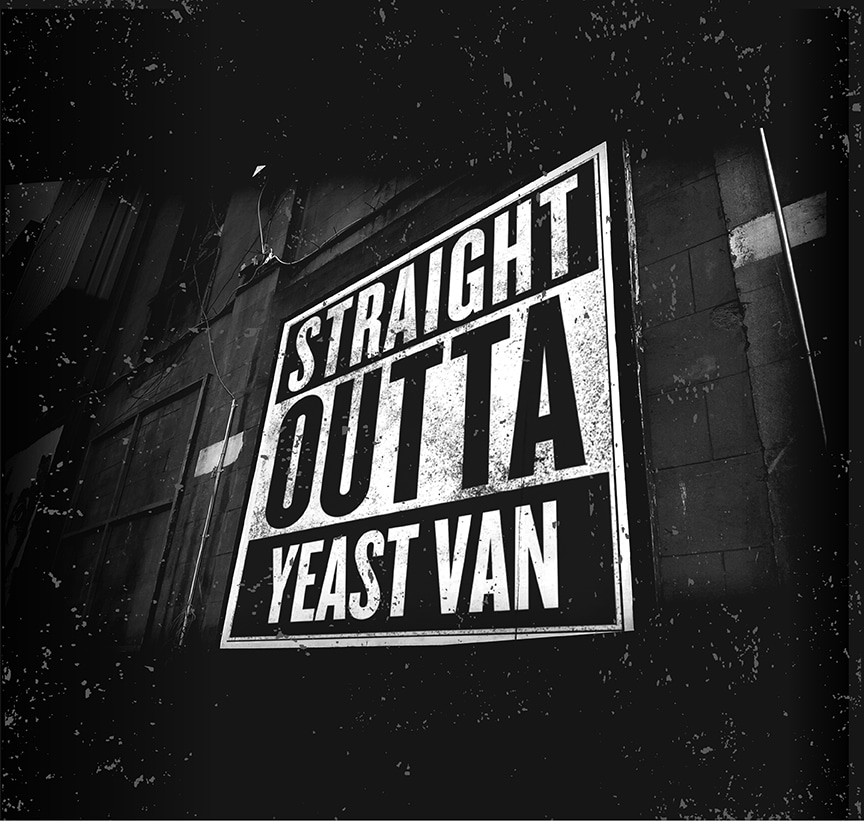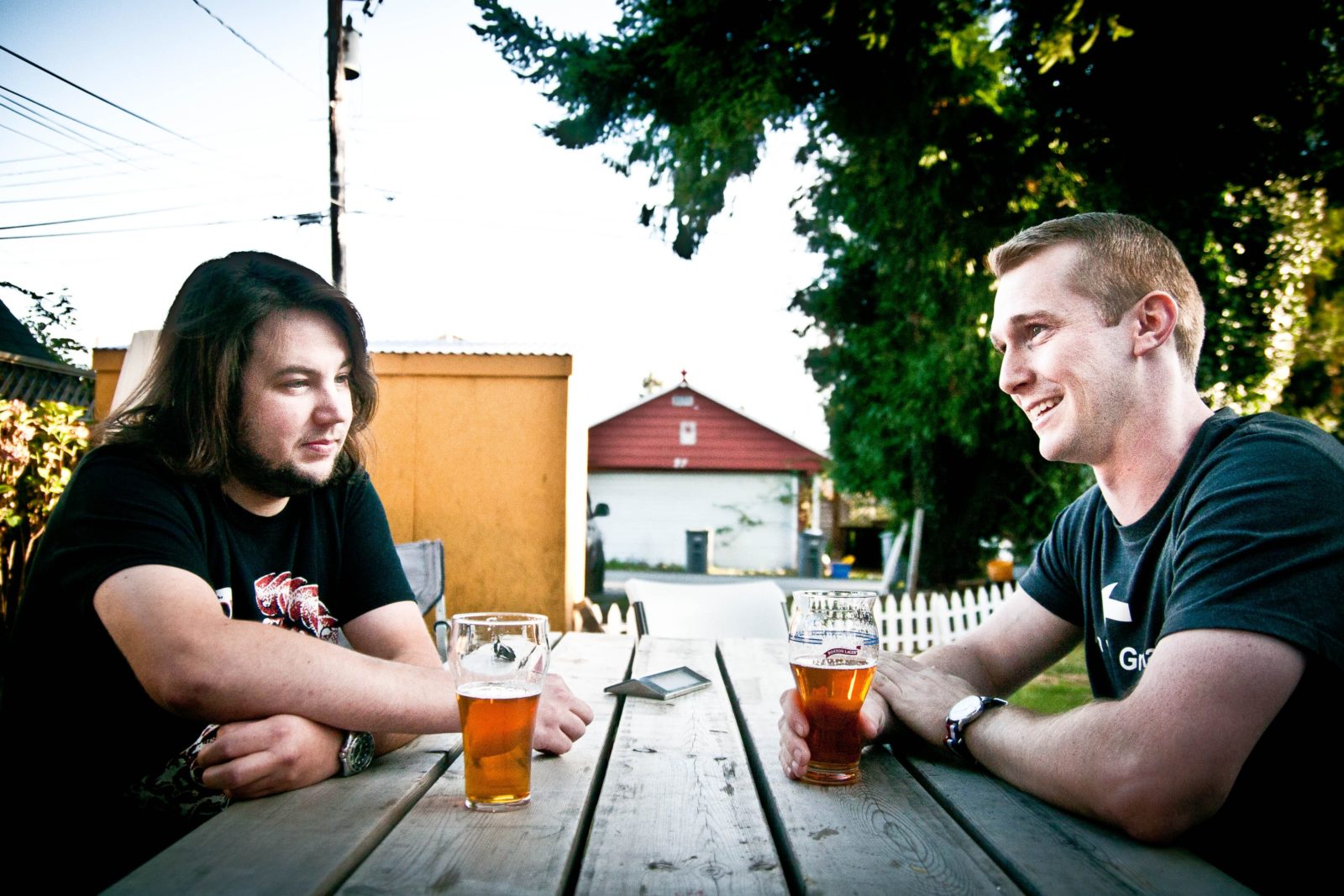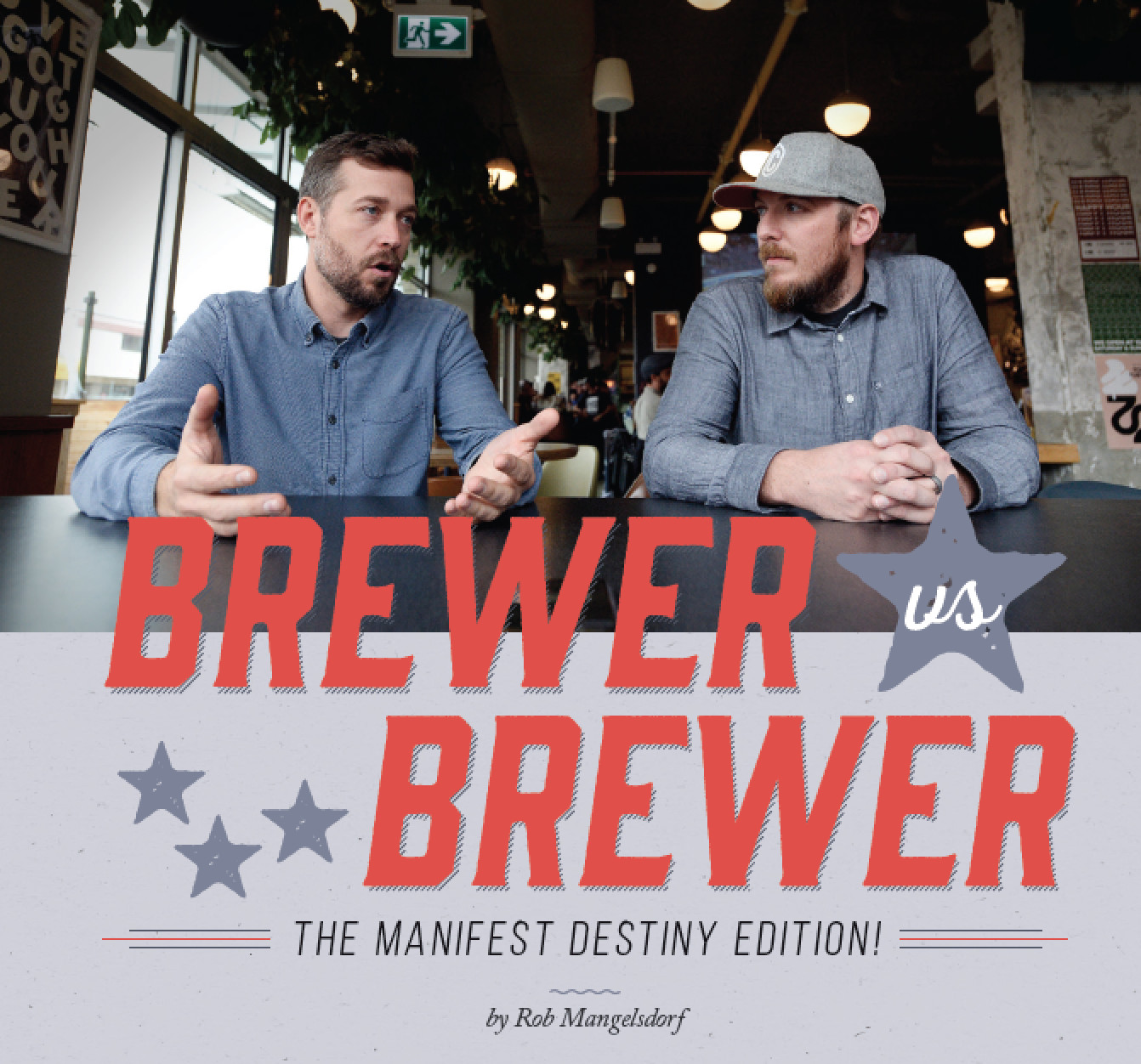
This story originally appeared in the Spring 2020 issue of The Growler, out now! You can find B.C.’s favourite craft beer and cider guide at your local brewery, cidery, select private liquor stores, and on newsstands across the province.
The Yankees are coming! The Yankees are coming! That’s right, Laura Secord, the word is out about the B.C. craft beer scene down south, resulting in talented American brewers spilling over our borders (well, trickling at least) and into to the Great White North. The whole free healthcare thing helps, too.
They’re bringing their new-fangled fancy beer ideas with them, and we couldn’t be happier.
So we sat down with recent arrivals Tim Juul, head brewer at Container Brewing, and Trever Bass, director of brewing operations at 33 Acres, to talk about the American invasion and what their plans are for the new 51st state.
I, for one, welcome our new craft beer overlords.
The Growler: Well hey, welcome to Canada, guys. Tell me a bit about your first impressions so far.
Tim Juul: I love it up here. It’s a big change from the eastern United States where I’m from. My wife dragged me out here, she’s working at UBC. After Trump got elected, my wife and I joked that we were going to move to Canada.
Growler: It doesn’t matter who gets elected, there’s always a portion of Americans who are like, fuck it, I’m moving to Canada! We’re everyone’s plan B.
Juul: Yeah, we had no real intentions of moving here, but my wife is doing her post doctorate, and UBC was one of the ones that was available, one of the better ones that’s available, so we thought it would be a once-in-a-lifetime opportunity to check out Canada. And the political scene is way more mellow, which is nice.
Trever Bass: I moved up the beginning of September, but I have family here and I’ve been coming to Vancouver for 20 years.
Growler: How are you adjusting to life in Canada?
Bass: Moving to a new country, even if you have family there, it’s a process. It’s the little things. Like, I just got my phone today, with a Canadian phone number and that felt like a really big deal. You know, I’m still trying to find my home bar.
Growler: So what’s your background? Where were you brewing before you came to Canada?
Juul: I started brewing at Fort Hill Brewing in western Massachusetts. Started out just helping out and moved up into a brewing role and head brewer. It was a fully-automated 60 hL system, 240 hL tanks. It’s a big change going from that down to the 20 hL system at Container. We were in the same market with Trillium, Tree House, all that.

Bass: I was in Portland, I was the head brewer at Migration for a year and a half and was at Hopworks for six or seven years before that. I started out as a delivery driver at Hopworks, and worked my way up. I had some brewing experience, but that’s where I started. 33 Acres is pretty similar in size to Migration.
Growler: What are some of the differences you’ve noticed up here, in terms of the beer scene? Is there anything that strikes you as strange or bizarre? Anything we’re missing out on?
Juul: Actually, I think B.C. is skipping over some of the bad aspects of the U.S. beer scene. We have a lot of gigantic retail breweries that are suffering right now. And I don’t think B.C. is really going to go through that, with massive equipment that’s not getting utilized, people getting laid off. B.C. has just skipped right to the local scene.
Growler: Have you noticed a difference in what the Canadian craft beer consumer wants? Is the market different up here?
Juul: The consumer is different for sure, at least from the Northeast. All people want is hazy IPAs and milkshake IPAs. People here are a little more open to trying new things. I think craft beer came on a bit later here, but West Coast consumers are definitely educated. They might be over educated! But that education opens up the market more.
Bass: My first impression was 10 years ago when I first started visiting. I’ve seen the B.C. craft beer scene change a lot. Back then it was Steamworks, Granville Island, and now those are the old school breweries. It’s shifted a lot from 10 years ago to five years ago, then shifted radically in the last five years. Brassneck and 33 Acres were two breweries that I went to as soon as they opened. It feels a lot more like Portland now. There’s so many breweries coming up and they each have a specialty.

Growler: I think you have to find a niche when there are so many breweries in the same market.
Bass: Yeah, when I moved to Portland 10 years ago, there were 35 breweries and everyone was saying, this place is saturated, there’s no way it could support 40 breweries. And it happened in six months. And now there’s 70-plus, 80-plus breweries. It’s crazy.
Juul: Do you think that the thing that’s keeping them afloat is the hyper-local aspect of the consumer?
Bass: Yeah.
Juul: Do you think in Vancouver, it’s kind of the same idea?
Bass: I don’t think Vancouver’s there yet. I feel like Vancouver is where Portland was when I first moved there. People think there can’t possibly be any more breweries, but we’ll see six breweries close and 20 breweries open. Bigger breweries will start to sell less beer and smaller breweries will serve their neighbourhood.
Growler: The margins are so much better when you’re selling pints in your own tasting room.
Bass: Totally. And when you have that sort of brewery scene, you have to specialize. You can’t say, oh we made an IPA, and it’s the same as the one down the street. Because people are just going to go to the one down the street or the one closest to their house. So it’s got to be good, it’s got to be well made and it’s got to have a unique twist to it.
Growler: The idea of terroir in beer is kind of a new concept, at least here. Is there anything you see here as being distinctive?
Bass: I think a lot of beer is still pretty malt forward in B.C., especially with hoppier styles. You see a lot less of that in the U.S., at least in the Oregon beer scene. I don’t know what it’s like back east.
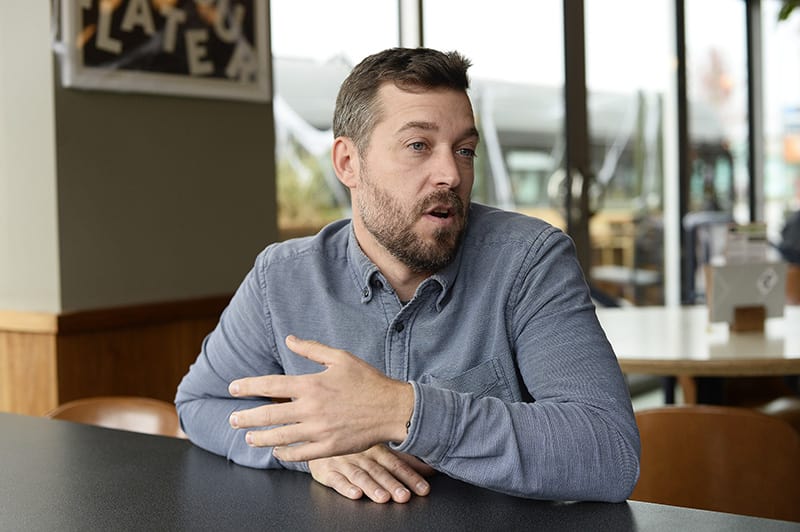
Juul: Back east you don’t put caramel malts in anything, except maybe a stout.
Bass: Yeah, the old school style still has legs, and that’s shifting, but it’s definitely here. There’s a regional palate, and a B.C. IPA is different from an Oregon IPA, which is different from a Southern California, San Diego IPA. And I think that because of all these other influences that come to B.C., we’re still seeing what the new B.C. IPA smells and tastes like.
Growler: What are some B.C. beers that you guys like? Anything that’s jumped out at you?
Juul: Actually, 33 Acres, the French blanche [33 Acres of Sunshine] was one of the first ones that I drank here, and it’s a delicious beer. It’s one of my go-tos when I hit the liquor store.
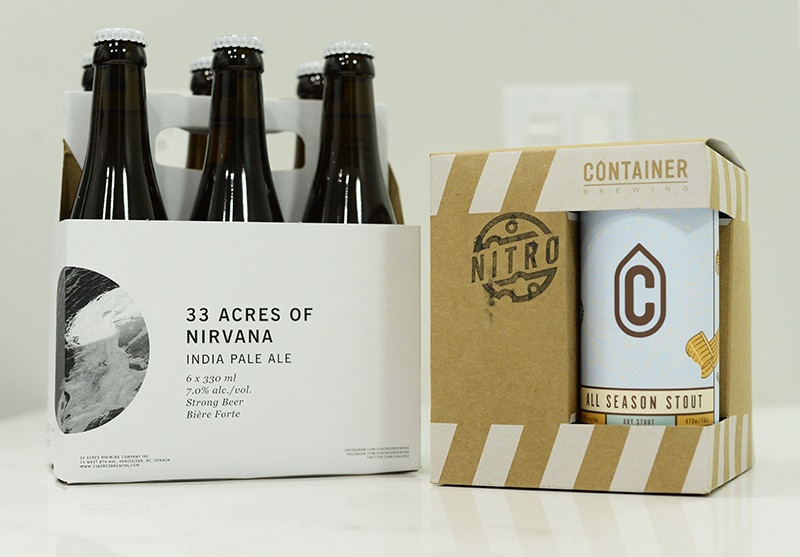
Bass: I hate to be the guy that talks about the place I work now, but yeah, 33 Acres of Sunshine was the first beer that I had at the Great Canadian Beer Festival probably six or seven years ago, right when 33 Acres had opened. And I was like, whoa, this isn’t like any of the other beer I’m seeing in Vancouver right now. My little brother lives up here and he’s always slinging stuff at me. Nectarous is one of those beers when I tried it… four years ago? I don’t think there’s a better version of that beer in the Pacific Northwest. For a dry-hopped sour to have that much depth of flavour and impact.
Growler: It was a turning point beer for sure. It won Beer of the Year at the Canadian Brewing Awards [2016] and the style just exploded. Soon everyone was doing them.
Bass: Yeah, I think that’s a beer that all of B.C. can be proud of.
- The Spring 2020 issue of The Growler is out now! You can find B.C.’s favourite craft beer and cider guide at your local brewery, cidery, select private liquor stores, and on newsstands across the province.


